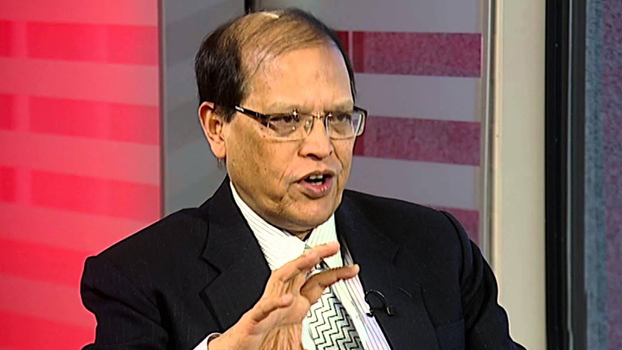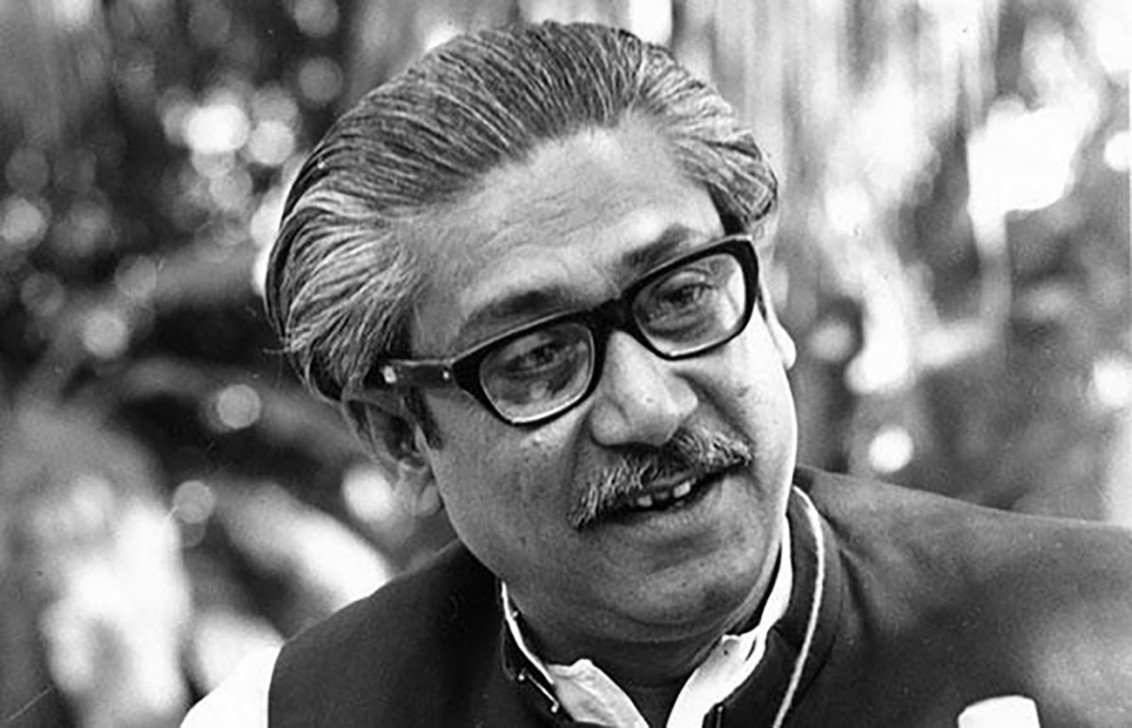Bangabandhu envisaged Sonar Bangla when he was a young politician: Dr Atiur

If Bangabandhu had survived and ruled for another decade, Bangladesh could have achieved the status of a developed nation much earlier, said Dr Atiur Rahman, an eminent economist and former governor of Bangladesh Bank.
In an exclusive interview, Dr Atiur Rahman said, “We could get the benefits of having a long-term government like Singapore and Malaysia if Bangabandhu continued to stay in power.”
After Independence, Bangabandhu adopted three very important policies which were a very timely and appropriate decision. The policies were, raising food production, controlling the population and emphasizing the right to public education.

Following are the excerpts of a frank discussion with Dr Atiur Rahman when Bangladesh Post presented a set of questions.
Bangladesh Post: How far has the nation been able to fulfil Bangabandhu's dreams of building a ‘Sonar Bangla’ (golden Bengal)?
Atiur: Bangabandhu Sheikh Mujibur Rahman started dreaming of building a ‘Sonar Bangla’ when he was only a young politician (student). Before intervention by the British, a businessman of Murshidabad could have bought a huge city if he wanted to, which means Bengal had so much rich resources. Bengal was one of the richest regions of the world at that time. This is why Bangabandhu was thinking of this dream. Bangabandhu realized that thousands of people then in Bengal starved to death despite this region being one of the most prosperous places having rich resources. He then reckoned that it was the colonial rule that neglected the people of Bengal. Bangabandhu was very fond of Sonar Bangla and so he decided to adopt Rabindranath Tagore's famous song ‘Amar Sonar Bangla’ as the national anthem of Bangladesh.
After Independence, Bangabandhu told an Indian journalist that I am going to independent Bangladesh that will be peaceful, progressive and prosperous Bangladesh. Remember, Bangladesh did not have a single dollar in reserve, not even in the Central Bank itself. At a time when one crore people were refugees, about 20 lakh houses were destroyed, roads, airports, railways were all damaged and every other building almost collapsed, Bangabandhu was dreaming of building Sonar Bangla. With his iron hand and strong determination, Bangabandhu ventured to build Sonar Bangla from the ruins of the aftermath of the bloody war in which the economy was so fragile that people hardly were able to imagine how to survive and live on.
Bangladesh Post: If Bangabandhu ruled longer what changes could we have expected?
Atiur: Of course, if Bangabandhu had the opportunities of serving the nation much longer I am sure the nation could have a stronger foundation of a thriving economy because of his affection for the people of this country. He believed that the Bengali people were hard-working and he always thought making Bangladesh another Malaysia is achievable. One of Bangabandhu’s vision was to address food shortages which the nation faced after the war. So, he focused on the green revolution and put emphasis on agriculture research for increased food production.
Population control was another focus area in which Bangabandhu prioritized his attention. He thought the smaller the size of the family better the burden on the family as well as the nation. So he heavily invested in ‘controlling’ the population and see the benefit today – Bangladesh’s population size is smaller than experts had predicted decades ago. The third thing Bangabandhu thought was needed as a solid foundation in accelerating the country forward was public education. He decided to have free primary school education for all and gradually built on making education free for all secondary school students. So, after independence in 1972, the journey of development was not so easy. It was a very difficult situation as the per capita income in 1972 in Bangladesh was only US$93. Meanwhile, at the end of the 2019-20 fiscal year, the average annual per capita income exceeded $2,000 to stand at $2,064.
Anyway, the country is now developing very fast under the dynamic leadership of Bangabandhu’s daughter Prime Minister Sheikh Hasina. Under the visionary leadership of Prime Minister Sheikh Hasina, the country has almost achieved the dream ‘Sonar Bangla’ as most of the UN SDG goals have already been fulfilled and it has a target of attaining status as a developed country by 2041.
Bangladesh Post: As you already know that Bangladesh recently qualified to be a developed nation. Are we moving in the right direction and please point out if we have any lacking?
Atiur: We are on the right track. I would say that our rural-economy and agriculture has played a significant role in such growth. Participation of the women labour force in the economy also went up and it has too contributed significantly. I can see that privatization is accelerated. And because of this plan we can see that 81 per cent of the total investors are coming from the private sector. One of the other plans we have taken since 2010 was Agriculture Development. Farmers in many places now use advanced technologies like solar panels to run irrigation motors. The export sector and digitalization are helping our economy. Our banking sector has played a very important role. The country is moving fast for increased remittance inflow and higher export earnings.
So, we are moving on the right track. Anyway, for sustainable development, we need to improve further. For that reason, the speed of implementation, especially the infrastructure projects, needs to be further increased. I strongly believe that we have to have more infrastructure projects. We need to implement more megaprojects more quickly. Once these megaprojects are completed, I think the nation would start seeing major changes. The country has performed better in many aspects compared to other neighbouring countries, including GDP growth and Human Development Index (HDI). Bangladesh has made impressive progress in the last decade in many economic indicators including export earnings, remittance inflow, reserves, per capita income and poverty reduction.
Bangladesh Post: Bangabandhu nationalized many industries and moved forward. On the contrary, we are now emphasizing privatization, a particularly private-public partnership. How do you see the difference in approaches?
Atiur: Bangabandhu was never against promoting the private sector. If you analyze carefully you would find that our constitution mentions promoting three ventures - public sector, cooperative sector and private sector. So, Bangabandhu was never against the private sector. Rather he favoured the private sector which can be found in his budget proposal of 1974 and 1975 where he had proposed allowing space to develop in the private sector. The public sector had to play a significant role. The public sector was weaving then. They were the Pakistani entrepreneurs in our country but then they left their factories and left with the managers after Independence. There was no Entrepreneur Club in Bangladesh then. In such an environment Bangabandhu was forced to nationalize the factories.
Bangladesh Post: In poverty reduction, Bangladesh is now a role model for many countries. What more could we do to further reduce poverty?
Atiur: The Corona pandemic suddenly slowed down growth in many areas, including the poverty reduction campaign. However, we again came back strongly to reduce poverty. I think, there are many reasons as Bangladesh has made remarkable progress in reducing poverty after Independence. The government has taken several initiatives to reduce poverty including some special projects for rural people especially women. The government has implemented many projects including women empowerment, rural employments and women education which had significantly played a vital role to reduce poverty. Anyway, we can further reduce poverty if we take advantage of demographic dividend as the country has more youth population. If we help them become entrepreneurs, I believe poverty can be addressed to a large extent. On the other hand, there are many places in the country, especially remote shoals (chars), wetlands (Haors) and coastal areas where poverty reduction remains to be a major challenge.



